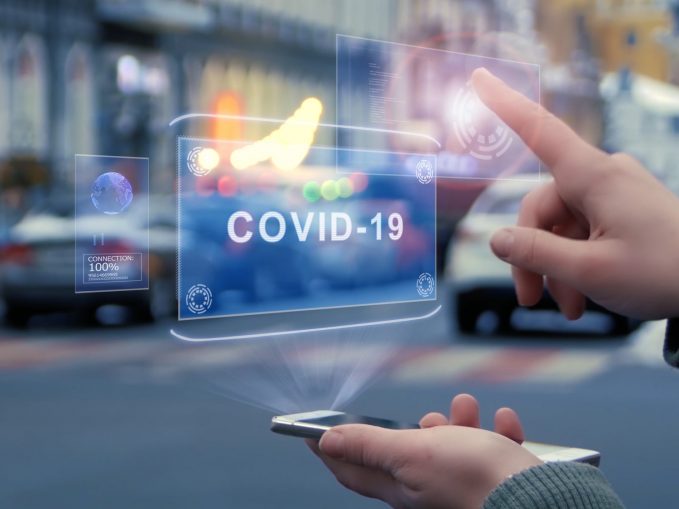
By Mark Boada, Executive Editor
The COVID-19 pandemic poses a new challenge to fleets, particularly pool fleets, those for which different drivers may be assigned to use the same vehicle day to day or even shift to shift or hour-to-hour. The reason is that the coronavirus has been found to remain active on surfaces for up to 96 hours and infected drivers who don’t show symptoms may be passing the virus along to the next one.
Last week, Donlen, one of the largest fleet management companies in North America, hosted an hour-long, webcast “think tank” in which company executives, panelists and what a Donlen co-host said was a “packed” virtual audience of fleet professionals shared the measures they are taking to try to keep their shared vehicles virus-free.
Program co-hosts were Carlos Oropeza, Donlen’s director of marketing, and Jeff Lucas, the company’s senior vice president of contact center operations. They were joined by panelists Yogi Shivdasani, vice president of the North American supply chain for LKQ, an auto parts dealer and distributor with a mixed fleet of 7,000 vehicles; and Mike Tucker, senior fleet analyst for MedSpeed, a health care industry logistics and same-day transportation company with 1,400 vehicles, chiefly vans and cars used to deliver critical patient care materials.
Among the steps fleet officials described they are taking and recommending were:
- Keeping a driver log that, for each journey, records the driver’s name and identification number, the vehicle number, the driver’s start and end time and the next driver assigned to the vehicle. This enables fleets to identify drivers in case any test positive to the virus and those who may have been exposed by them. Fleets that don’t already keep driver logs were urged to start, even it means creating a manual system.
- Reminding drivers to contact company officials if and when they show COVID-19 symptoms or have been exposed to anyone who tests positive or shows symptoms.
- Telling drivers to wash their hands for 20 seconds with soap and water frequently and to wipe down all frequently touched vehicle surfaces with disinfectant when they return a vehicle. Speakers said the surfaces include the steering wheel, gear shift lever, turn signal stalk, light switches, radio and climate system controls, interior and exterior door handles, seats and seatbelt fasteners, touch screens, cupholders, keys, tools and shared fuel cards.
- Providing drivers with bottles of commercial hand sanitizer, when available or, when supplies run out, making their own out of widely available ingredients. Formulas for gels and sprays are available online and variously include rubbing alcohol, distilled water, hydrogen peroxide, glycerin or glycerol, aloe vera gel and tea tree oil. Mr. Tucker said MedSpeed is providing its logistics service representatives (their term for their drivers) with medical alcohol wipes when bottles of sanitizer aren’t available.
One anonymous audience member, however, reported that alcohol damages their fleet vehicles’ interior and so is using non-alcohol-based sanitizers, and Mr. Shivdasani cautioned that ammonia can damage digital touch screens. Mr. Lucas advised the audience to refer to the Centers for Disease Control’s website for a list of approved sanitizers, and to test any cleaner or disinfectant on a small section of a vehicle surface before using it.
- Providing drivers with latex and non-latex gloves, and advising them to change them after daily use.
- Telling delivery drivers to minimize close contact with customers. Mr. Shivdasani said LKQ drivers are being told to sign for their customers on their mobile electronic devices when deliveries have been made.
- Instructing drivers to wipe down fuel pump handles and keypads before or after refueling their vehicles.
- Calling in commercial cleaning companies to sanitize vehicles. Speakers noted that at least one fleet is known to be taking its vehicles out of service until they can be commercially cleaned and sanitized.
- Shifting to mobile preventive maintenance. Mr. Tucker said MedSpeed is accelerating its use of mobile preventive maintenance services instead of brick-and-mortar providers, both to minimize driver exposure to the pandemic and reduce vehicle downtime.
- Instructing drivers to thoroughly wipe down their vehicles after being serviced at a commercial service station.
- Requiring employees to take separate vehicles or to maintain maximum distances between them if riding in the same vehicle.
- One anonymous fleet professional in the audience said they are waiting 48 hours before allowing a pool vehicle to be driven again.
“These are unprecedented times,” Mr. Lucas noted in opening the program. “As fleet professionals, we have an obligation to do everything we can to keep our employees safe and do everything possible to minimize the spread of this deadly virus.”




